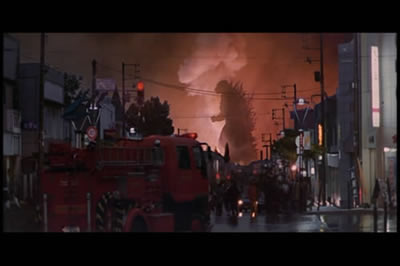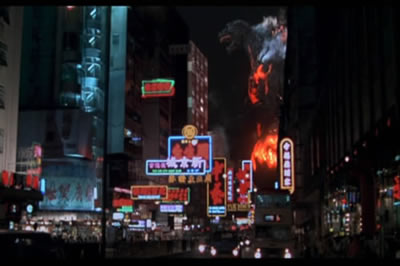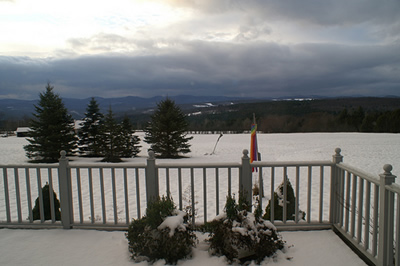
Mood: Filled with the desire to stomp Tokyo
There are certain media properties that I come back to, year after year. And I'm starting 2009 with a celebration of Godzilla. This is the first year that Toho might resume production of Godzilla films after a five year hiatus.
Godzilla films are, on the surface, about a gigantic, radioactive lizard stomping a city in Japan, traditionally Tokyo. And there might be some conflict with another gigantic aberration of nature along the way. The metaphor in Godzilla has long been the the titanic forces unintentionally unleashed by our technology. In the original film, this was clearly nuclear testing, but that's gotten muddy in the subsequent films.

The important part is Godzilla stomping on a city. I don't know if it's my closet misanthropy that loves seeing the works of man tumble in a fictional setting in a safely fictional setting. I don't like watching earthquake footage, although I could watch tornado videos all day. Destruction without killing, perhaps.
For me, the best Godzilla sequences show Godzilla against the backdrop of reality. This was done best in Godzilla 2000, which gave a good sense of a huge radioactive lizard intruding into the real world.
Likewise, Godzilla vs Destroyah, where Godzilla stomps on Hong Kong. He's inconsistently sized, but seeing the Big Guy with his nuclear heart overheating was a big shock.

Unlike many G-fans, I don't like all Godzilla films. The one where he's upstaged by the giant, goofy-looking robot? I don't think so. The cheesy ones just don't appeal. My faves remain the original Godzilla, Godzilla 2000, and Godzilla vs Destroyah.



